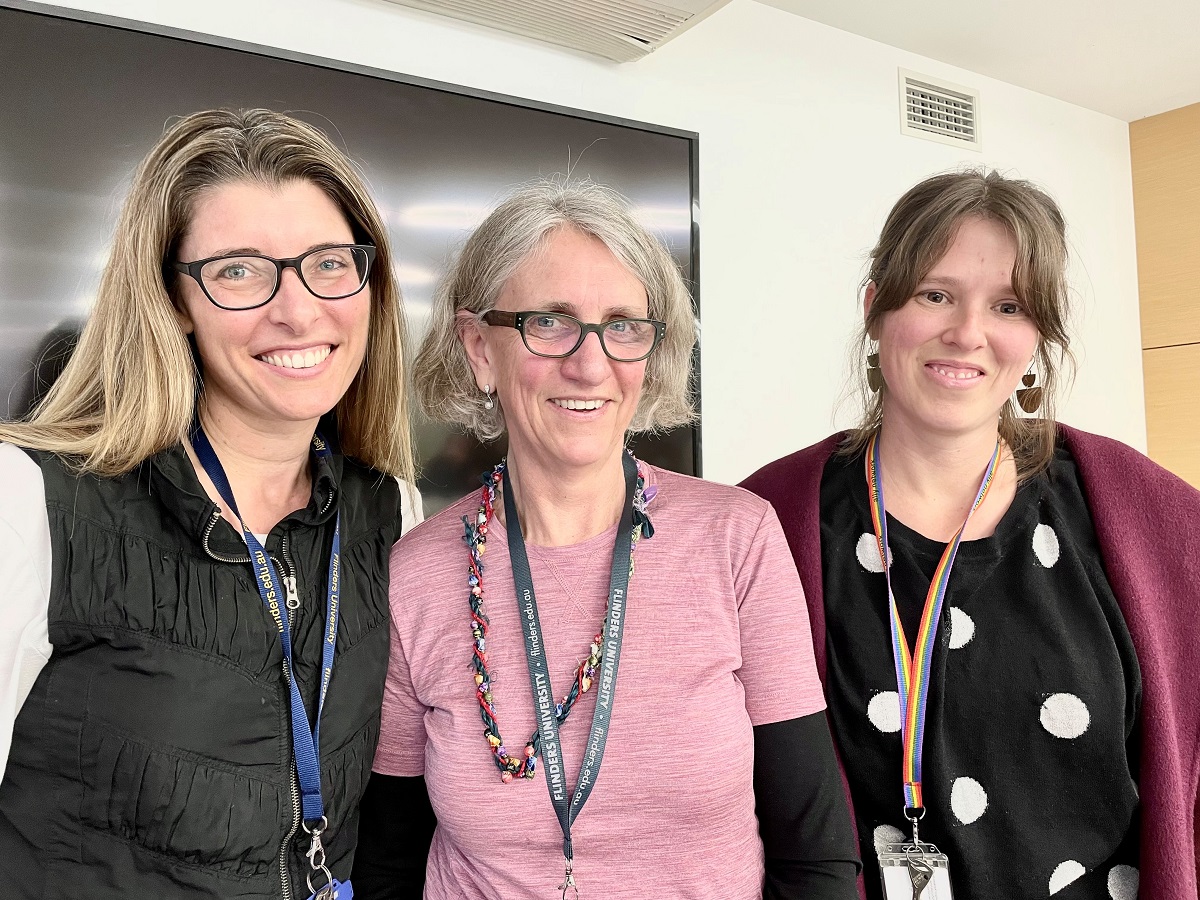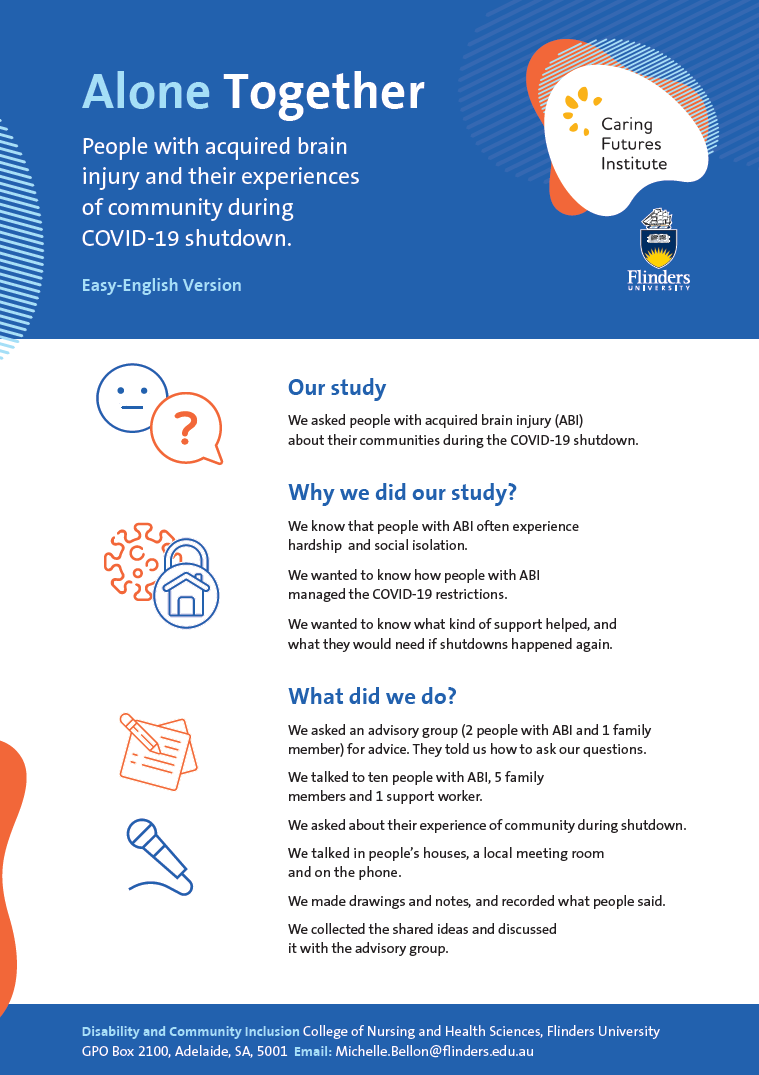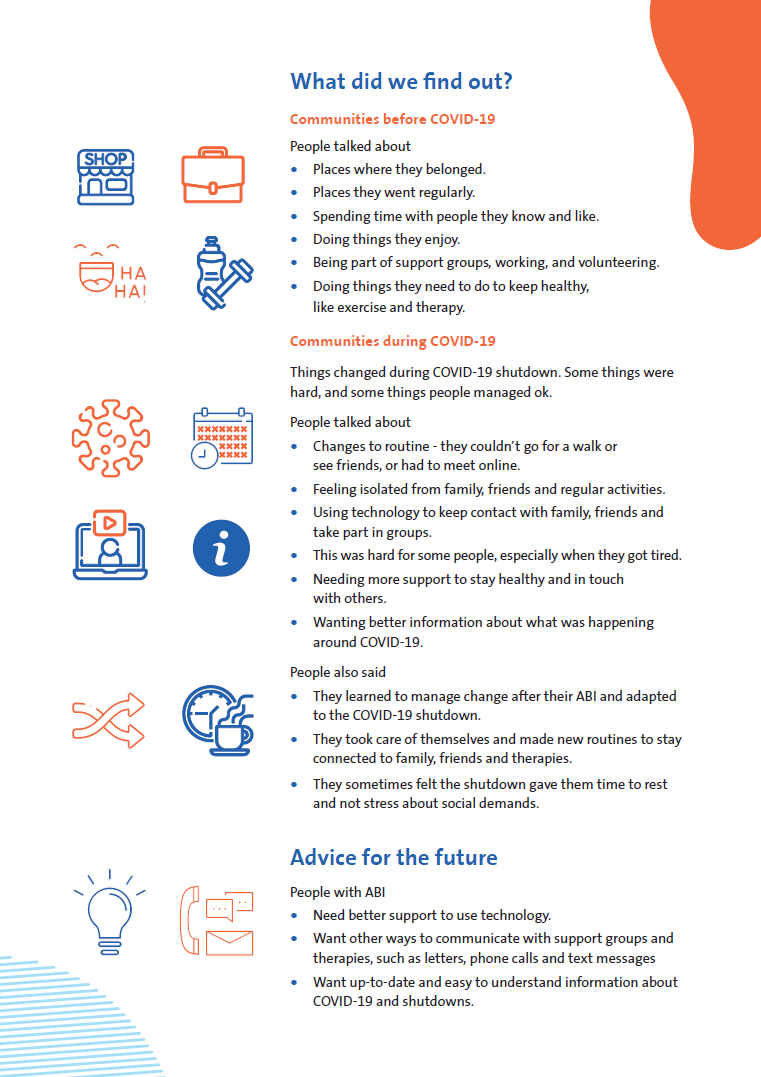
Flinders Caring Futures Institute researchers can now provide a snapshot of the impact of COVID-19 on people with Acquired Brain Injury (ABI) after completing a study in 2020 and 2021.
Consisting of Associate Professor Michelle Bellon, Dr Jan Idle, Kiri Lay and Professor Sally Robinson, the research team produced an article entitled Community in the Pandemic: Experiences and strategies by people with Acquired Brain Injury and their families during COVID-19, now published in Disability and Rehabilitation.
It’s well established that people with ABI often experience hardship and social isolation in their day-to-day life. The aim of the study was to explore the experiences of people with ABI and their family members during COVID-19 restrictions in South Australia. By conducting interviews with ten people with ABI, five family members and one support worker in South Australia, the team investigated the ways people maintained their communities and sense of belonging, especially during lockdowns and changes to routine, and the strategies they found helpful to deal with the situation.
“Establishing routines after a brain injury is so important, however these were massively affected during lock-down,” A/Prof Bellon explains, adding some found the isolation and feeling “forgotten” extremely challenging.

The team also found people felt they needed more support to stay healthy and in touch with others and wanted better information about COVID-19 than was widely available.
Four key themes were identified from the findings, including disruptions to routine; social isolation; use of technology; and strategies for staying safe and keeping well.
“Results are discussed using a social and urban geography lens and a conceptual framework of belonging to explore the experiences of people with ABI and their communities,” A/Prof Bellon says. “We found people with ABI drew on reserves of experience to confront new sets of challenges.”
Those interviewed were able to provide advice on service provision and approaches in the future, contributing ideas about what they would need if shutdowns occurred again.
“It became clear to us that governments, health services and community groups must provide clear and accessible information and supports, and regularly reach out to ensure the safety and wellbeing of people with ABI and their families during the pandemic,” A/Prof Bellon says.
People with ABI want other ways to communicate with support groups and therapies, such as through letters, phone calls and text messages. They also want timely, easy to understand information about COVID-19 to stay informed.
The research team worked closely with a small advisory group consisting of two people with ABI and a family member to ensure the study was relevant and conducted appropriately. This group provided guidance on research practices; the development of plain English information sheets; the interview schedule and approach; feedback on preliminary findings and analysis of interviews; and developing the plain English research summary flyer.
This study was funded through Flinders Caring Futures Institute’s COVID-19 Collaborative Research Grant Scheme.
The article can be viewed here.



